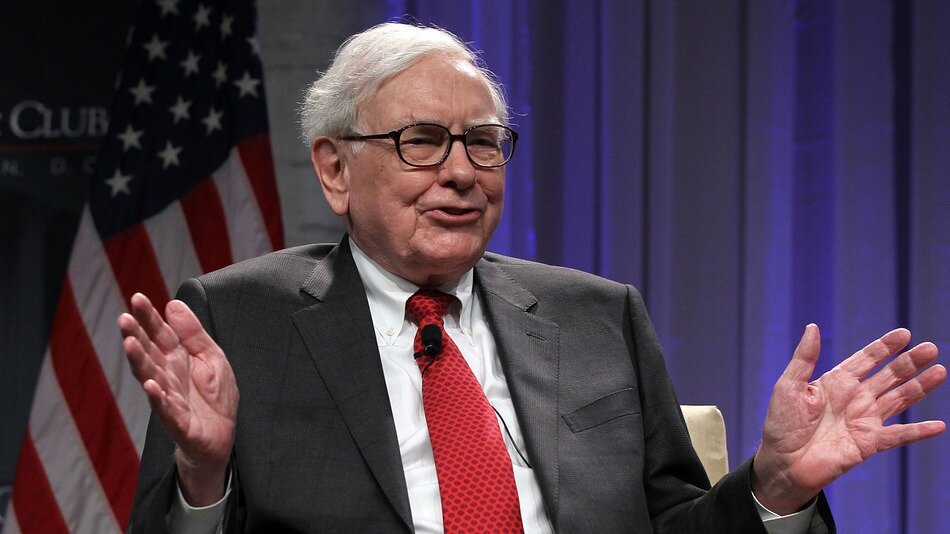 Warren Buffet, also known as the ‘Oracle of Omaha’ is one of the world richest and most successful men. He made his first investment at just age 11 before beginning his first small business by age 13.
Warren Buffet, also known as the ‘Oracle of Omaha’ is one of the world richest and most successful men. He made his first investment at just age 11 before beginning his first small business by age 13.
But this was just the start; as Buffet would go on to make his forthcoming fortune through a large series of smart investments spanning his lifetime ahead. In this post, I’ll be discussing both the life and lessons of Warren Buffet and his success.
Warren Buffet: Life Biography
Warren Edward Buffet was born on 30th August 1930, in Omaha, Nebraska to his parents Howard and Leila Stahl Buffet. Buffet’s father worked as a stockbroker in his own local shop, while his mother was a homemaker. Buffet had 2 sisters, but was the only boy in the family.
From an early age Buffet showed a lot of interest and skill in financial and business doings, with an outstanding skill in mathematics and mental arithmetic; and the ability to add large columns of numbers together in his head.
As a child, Warren frequently visited his father’s stockbrokerage shop, chalking up the stock prices on a blackboard in the office. This was the beginning of his investing empire. At 11 years old Buffet made his first investment, buying three shares at $38 a share of Cities Service Preferred.
But the stock quickly dropped to only $27. Buffet held on until they reached $40, where he sold for a small profit. However, he later went on to regret that decision when Cities Service shares rose to almost $200 a share – something he later reflected on as being an early lesson in investment patience.
Business at Thirteen
At just age 13, Warren had begun his own businesses as a paperboy and selling his own horseracing tip sheet. He also filed his first tax return that year, claiming his bike for a $35 tax deduction.
In 1942, Warren and his family moved to Fredericksburg, Virginia, after his father was elected to the U.S. House of Representatives. Buffet moved to Woodrow Wilson High School in Washington D.C. and continued to make money.
At this time, Buffet and a friend brought a used pinball machine for $25 and got it placed in a local barbershop. A few months later and they’d made enough money from it that they were able to buy another. They soon had 3 machines in 3 different locations, before selling the business for $1200.
University & After
At age 16, Buffet enrolled at the University of Pennsylvania to study business. After 2 years there, he moved to the University of Nebraska to finish his degree. He graduated that year with a Bachelor of Science in Business Administration and left University with nearly $10’000 remaining from his childhood ventures.
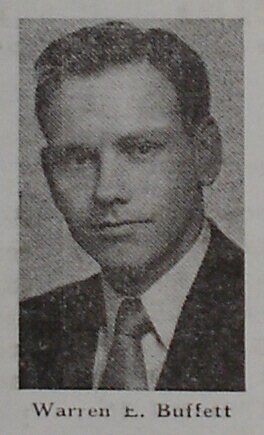 Following this he went on to receive his advanced degree from Columbia University while working for Benjamin Graham and in 1956 formed the Buffet Partnership in Omaha.
Following this he went on to receive his advanced degree from Columbia University while working for Benjamin Graham and in 1956 formed the Buffet Partnership in Omaha.
Throughout 1957, Buffet operated three partnerships, something that increased to seven by 1960. He asked one his partners, a doctor, to find ten other doctors willing to invest $10’000 each in his partnership that year and eleven agreed.
He invested in many successes through the partnership and particularly liked to invest in undervalued companies whose stocks he knew would shortly begin to rise. This made Buffet extremely rich and gained him the title, “Oracle of Omaha.”
A good example of this was the Sanborn Map Company, which accounted for 35% of the partnerships assets in 1961. Buffet explained that in 1958, Sanborn stock sold at only $45 per when the value of the Sanborn’s investment portfolio was $65 per share, meaning that buyers valued Sanborn stock at ‘minus $20 a share’, something which would soon make him a large amount of money back.
This earned him a spot on the board of Sanborn.
Becoming a Millionaire with Berkshire Hathaway
Buffet became a millionaire from his partnerships in 1962, which we’re valued in excess of $7’178’500 (around $1’025’000 of which belonged to Buffet). Around this time, Buffet merged all of his partnerships into one and invested in, before eventually taking full control of a textile manufacturing company, Berkshire Hathaway.
He began buying shares in Berkshire Hathaway in 1962 from its owner, Seabury Stanton, who he later fired and replaced with a new president, Ken Chace. Buffet then began moving the business into the insurance sector and by 1985 the last of Berkshire’s textile manufacturing mills had been sold.
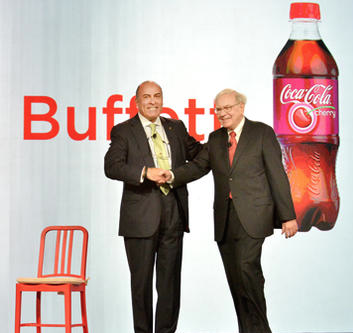
In 1979, Berkshire began the year trading at $775 per share, but ended it at $1,310, putting Buffet’s net worth at $620 million. This placed him on the Forbes 400 for the first time.
Berkshire Hathaway went on to make many more investments over the years to come, most notably in the Washington Post Company in 1973, buying out the Buffalo Evening News for $23.5 million in 1977, a 12% stake in Salomon Inc. in 1987 and in 1988, one of Berkshire’s most lucrative and exhilarating investments, a 7% holding in the Coca-Cola Company for $1.02 billion.
The Becoming of a Billionaire & Philanthropist
Buffet became an official billionaire on paper on May 29th 1990 after Berkshire Hathaway began selling Class A shares at a market closing price of $7,175 a share.
However, in 2006, Buffet announced that he would gradually give away 85% of his Berkshire Hathaway’s holdings to five different foundations by the end of his life. He began acting on his pledge in July 2006, when he gave his first of an annual gift of stock to several foundations including the Bill and Melinda Gates Foundation.
In 2008 Buffet became the richest person in the world, overtaking Bill Gates, with a total net worth estimate of $63 billion by Forbes. In 2009 Gates regained the top position on the Forbes list, shifting Buffet back only to second place.
Conclusion: Rich but Remaining Frugal
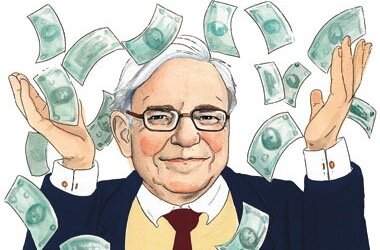 There’s no doubt, Warren Buffet’s life has been solely based and surrounded by the idea of money and wealth. His made his huge wealth from investing money, but never has he become a man of snobbery or lavishness from it.
There’s no doubt, Warren Buffet’s life has been solely based and surrounded by the idea of money and wealth. His made his huge wealth from investing money, but never has he become a man of snobbery or lavishness from it.
Like many of the worlds most wealthy and influential people, Warren Buffet seems to be in it for the enjoyment, excitement and journey of his business, but not for the money.
His 2006 annual salary from Berkshire Hathaway was around $100’000, a small amount compared to other senior executives of other similarly sized companies.
He also remains living in the same home he brought with his long-term wife in the central Dundee neighborhood of Omaha in 1958 for just $31’500 (now valued at around $700’000) even after making his billions.
Berkshire Hathaway stills remains to succeed to this day and Warren Buffet remains in the Forbes 100. He is however seeking a younger successor to run his investment businesses, suggesting a retirement could be coming soon.
None-the-less, Warren Buffet is a hugely influential and inspiration person and one we can learn many lessons in both life and finance from. We’ll look at some of these below.
Lessons from Buffet
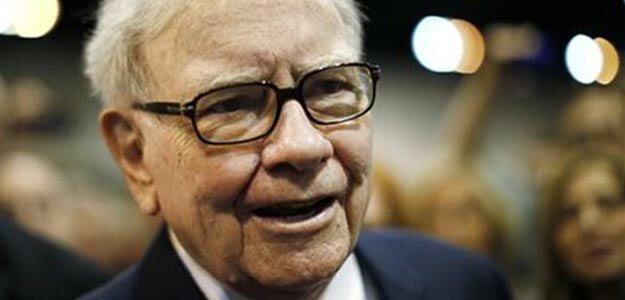 As spoke about above, Buffet’s life has mainly been made on the idea of money, saving and investment, so that’s mainly what we’re going to focus on here. Over several decades of experience in investing and finance, Buffet has developed some fine strategies and tips for financial success and we’ll look at just a few of these below.
As spoke about above, Buffet’s life has mainly been made on the idea of money, saving and investment, so that’s mainly what we’re going to focus on here. Over several decades of experience in investing and finance, Buffet has developed some fine strategies and tips for financial success and we’ll look at just a few of these below.
Never Depend on a Single Income
A lesson key to wealth and one told by many of the worlds most successful and wealthy individuals is the idea of creating several streams of income.
Buffet says, “Never depend on a single income. Make investments to create a second source.” With two, three or more incomes from various sources, you’re much less dependent on the forces of the markets going your way, which of course, they inevitably always won’t!
Big events will become small instances in your life, as you have other sources of income to fall back on. For example, you loose your job? That’s a problem, but it’s not as big a one if you have two properties bring in rent every month to fall back on instead.
By operating several streams of income, you’re also much more open to finding and taking on bigger and bigger opportunities to make money to. They say, the more the merrier, and this saying most certainly applies to your streams of income.
Live Below Your Means
Now as we’ve seen, Warren Buffet takes the word Frugal to a whole other level, but that’s because even at a simple level, it quite frankly works.
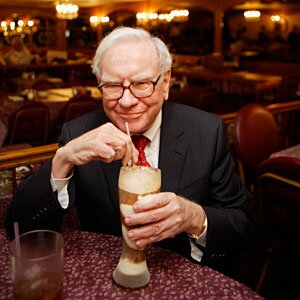 “If you buy things you do not need, soon you will have to sell things you need.” Says Buffet. We’ve become a world of consumers over creators, developers and doers, we buy rather than create and many of us have formed easy to the idea of spending money all of the time.
“If you buy things you do not need, soon you will have to sell things you need.” Says Buffet. We’ve become a world of consumers over creators, developers and doers, we buy rather than create and many of us have formed easy to the idea of spending money all of the time.
One quote I’ll always remember goes something like this, “Machinery that gives abundance has left in want,” but rather than being in want and to spend, the way most modern unsuccessful and poor people live, the wealthy like to save and invest instead.
It’s a small turn of the mind, but one I think is vital to both the future of humanity on this world and the future financial success of all those who think like the prior to. We’ll tackle the saving and investing part of this lesson in the lesson below.
Spend Just What is Left After Saving
If you’re one of those people like I spoke about above, that values short-term consumption over long-term investments and wealth, then this is the lesson for you.
Money makes money, but by spending it on short-term wants as soon as you’ve got it, you’ll never have any money to make it from. Many people live day-to-day, week-too-week, and month-to-month in the world and don’t save any more than for the short term just to consume off later instead.
We see it a lot; those people who never have any money saved and are thus reliant on payday lenders to bridge the gap or who save up but only for the short-term reward of a holiday. They never have any more money to put to or invest in anything else.
Don’t be one of those people, because it’s a downward spiral and one very few ever actually get out of. Buffet used to say, “Do not save what is left after spending, but spend what is left after saving.” And I think this rings really quite true in our world of consumers today.
Rather then spend everything and saving the little we have left, we should live below our means, save as much as possible and spend only what little we have left from that instead.
We can always find something else to buy with our money, but we can also find things not to buy with it after we’ve saved the rest of it away instead.
Conclusion: Save & Invest
Money makes money, but only when saved and ‘invested’ in the right place. If you want to be financial successful, then please just remember that.
Create multiple income streams, live below your means, save up, invest and add multiple more incomes to your bow. Follow this cycle and you’re sure to become a financial success.
Wrote by Joe Brown - Follow us - Comment Below!




